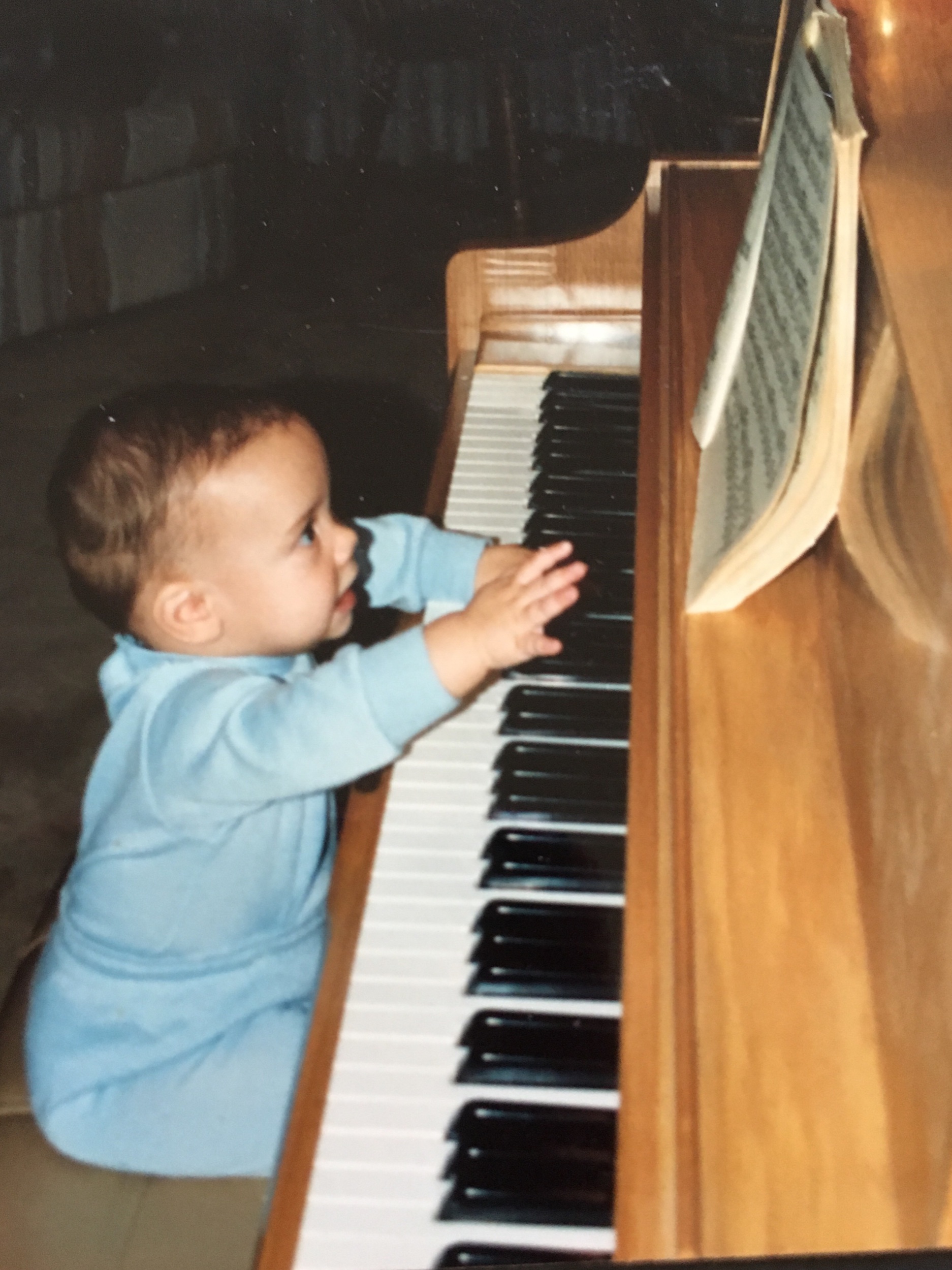Music Education in Childhood
Baby John’s first attempt at piano playing.
My mother tells a story that when I turned six, she announced to my Dad, “Alright, it’s time to start him on piano lessons.” “This was news to me,” my Dad will interject at this point in the recounting, “as neither I, nor any of my sisters had music lessons growing up, but your mother seemed adamant that piano lessons were just ‘what you were supposed to do,’ so we went and signed you up.”
A little older - actually using fingers here.
Bless my mother. I’m not sure if she was basing this decision on the abundant research that shows how music education in childhood sets students up for success in countless realms beyond the musical domain, or if she was simply following the same model she had been blessed with as a little girl growing up. Either way, it was a fortunate choice, as music went on to help define my career and my life more broadly.
As I’ve grown older and had kids of my own, I’ve been approached by a lot of parents eager to share a love of music with their own kids. The two questions I repeatedly hear are“What instrument should I start them on?” and “What age is appropriate?”
Teaching my little brother.
Let me start by saying it is never too early to instill a love of music in children. Singing to them, even if you struggle to carry a tune, will begin to plant the seeds of pitch and rhythm in their minds and bodies. Learning to march to a tune can help them learn about beat and tempo. Playing different styles of music for them on the radio will teach them to identify instruments and different dynamics.
As they grow older, however, you might want to investigate something more formal. Between the ages of about three and five, you can sign your kids up for Orff Classes which are designed to instill a love of music in young people. Using special pentatonic “Orff instruments,” kids can learn basic mallet technique, rhythm, tempo, call and response singing, and host of other collaborative skills that are fun and engaging for their age group. Another option for kids this age would be Eurhythmics Classes which, in a similar collaborative setting, emphasize singing and dancing and connecting the rhythmic aspects of music to the physical body. (This is also good at wearing your kids out so they actually sleep at night.)
The piano antics of preteen John.
Once your kids reach about age five or six, however, they are developmentally ready to start formal instrument training. Though I might seem biased, being a pianist myself, I really feel that the piano is the best instrument to start kids on for a number of reasons:
You won’t lose your piano somewhere like you might lose a violin
You don’t have to worry about constantly tuning the instrument like you might a guitar
You won’t have to worry about cleaning up spit like you might a clarinet or a trumpet
Being able to play multiple notes at once will teach you about both the treble and bass clefs and give you a stronger understanding of harmony
You don’t have to worry about sound production or embouchure in the same way you would a flute or other wind instrument
Preteen piano recital.
There is a (perhaps apocryphal) quote by Bach along the lines of “The piano really is the easiest instrument to play. You just press the right keys at the right time and the instrument practically plays itself.” While this is certainly humorous, there is an underlying truth to it.
Whether your child is learning in a one-on-one setting with an instructor or taking group lessons, the value of learning a new skill methodically from the ground up, one that is rooted in artistic expression, cannot be overstated. Along with the intrinsic value of getting to create something beautiful that speaks to the human experience, it can help them learn patience, discipline, and dexterity. For those reasons and many others, I cannot recommend highly enough the importance of exposing kids to music at an early age and engaging them in musical training in their formative years. It most certainly pays dividends in the long run.




